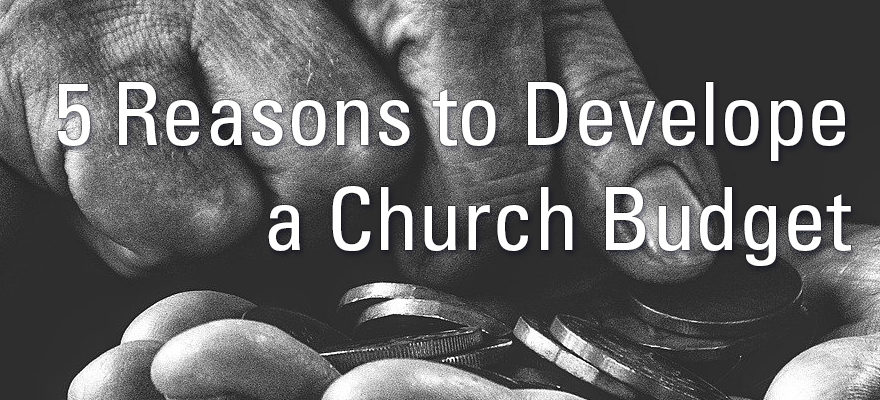by Franklin Dumond, Director of Congregational Ministries
Many church leaders resist developing a church budget. For them planning the financial life of the church seems to lack genuine spirituality and thus eliminates faith.
But achieving objectives does not happen by accident. It takes a plan, supported by budget dollars, to realize the goal. To paraphrase the Apostle James, faith demonstrates itself with a working plan.
- Developing a budget requires the church to develop a plan and to plan for at least 12 months in advance. This is perhaps the most important aspect of developing a budget since all too often churches function only in the immediate rather than recognizing the longer term.
Even households that do not write down a household budget often find themselves signing up for an equal monthly payment plan with the local utility. In essence, they develop a utility budget.
By simply looking back over the previous 12 months of expenses church leaders can project many of the basic needs for the upcoming 12 months.
By prayerfully considering “What does the Lord want us to do in ministry?” additional programs and line items can be developed and placed in the budget plan. In many cases exploring this kind of question will result in the need to plan for more than 12 months to be able to accomplish the goal. - Planning in advance also means that permission is given in advance to spend within the agreed on categories included in the budget. One of the greatest drawbacks of frequent business meetings is that what is done in one meeting can potentially be re-done or un-done in the next meeting. A church with a monthly business meeting could potentially rework their ministry plan every month. While flexibility is important, so is continuity and consistency.
Flexibility must exist in the church budget. For example, if income is inadequate then certain budget categories may not be funded. One wise pastor when faced with the prospect of an economic downturn explained his budget strategy to his finance team. “We’ll pay utilities and salaries. Everything else is on hold.” But because he worked with, rather than against, his leadership the impending economic downturn did not affect the congregation nearly as seriously as originally projected. - Budgeting helps develop strategies and establish priorities. Since no church can do everything, budgeting helps determine what ministry priorities will be chosen. Also, budgeting helps identify the strategy used to accomplish those ministries and it helps church leaders set goals that are realistic and meaningful.
For example, when adding staff positions it is sometimes wise to begin with interns or short-term contracts. Some pastors plan for the salary in the full-year budget but only fill the position later in the year. This allows some stockpiling of reserves to carry the new position forward. - Budgeting can reduce turf wars over available resources. A wise budget plan, for example, will generally allow for the program budget of a ministry to be spent over the course of several months. This same plan, however, also recognizes that one-time programs, like Vacation Bible School, may spend their entire budget in just a few days.
Because a budget is a projection, the use of a check request system or purchase order allows the financial leaders to review needed expenditures. Sometimes program leaders are unaware of how much of their program budget they have spent. At other times program leaders may wish to make a larger purchase at year’s end if the dollars are available for such an expenditure. - Budget planning can also help unify a congregation. When the plan is explained in a town hall or reviewed in a business meeting everyone has an opportunity to understand priorities and strategies. Only rarely does a church commit the sin of over-communication. More likely the church will commit the sin of under-communication.
I always found it helpful to profile the financial summaries in the church newsletter or bulletin under the two-fold categories of:
Our Budget Needs…………………..$______________
The Lord’s People Have Given….$_____________
When folks in the pew come to understand finances from a spiritual perspective every check in the offering plate becomes a testimony of spiritual maturity.
Ready for the next step? Then download our e-book “YEAR AHEAD PLANNING: GETTING READY FOR 2021“. YEAR AHEAD PLANNING is a Church Talk Publication designed to help stateside General Baptist leaders cope with the “new normal”.

